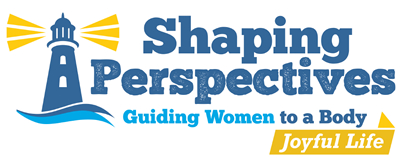Self Hatred is such a harsh phrase, and yet, something all too familiar.
What is the first thing you say to yourself in the morning when you look at yourself in the mirror? Is it something kind and compassionate? Or something negative and judgmental.
I know for me, most mornings I would degrade, criticize or making fun of my self. It was common place, and that harsh voice tended to stay with me all day. As a matter of fact, research tells us that when we start our day with compassion and gratitude, we will find it more throughout our day. If we start it with judgment and criticism, we will find more of that throughout our day. We are actually programming ourselves to look for it.
Our Inner Critic
These inner critics of ours are common and unfortunate constant in our inner lives. This internalized voice assumes the tone, words and language of our mothers, fathers, siblings, teachers, coaches, religion and society. No matter what we do or where you go, there it is. Doubting or damning us of our choices and decisions.
What I know to be true, is that for many people, “critic” is much too mild a word. The voice they hear is relentless, a vicious screaming that cripples and controls. They might call their voice the “Self-Hater” or the “Killer Critic.”
Not everyone hears self-hatred as a voice in their heads. Sometimes, it’s a way of being, an identity, that manifests in myriad forms.
- Sabotaging healthy relationships or good jobs
- Attempting to prove worthiness by being perfect or through high achievement.
- Being drawn again and again into abusive situations.
Where Does the Critic or Self-Hater Come From?
A Protector
In Embracing Your Inner Critic, Hal and Sidra Stone tell us our voice protects us. It protects us from the pain and shame of always being found “less than.” This voice develops within us “that echoes the concerns of our parents, our church or other people who were important to us in our early years.” That voice criticizes us before anyone else can.
“You can’t hurt me with your words, because I have said much worse to myself”
Punishment
Cheri Huber, author of There Is Nothing Wrong with You: Going Beyond Self-Hate, sees the culprit in child-rearing practices based on punishment. These practices, she says, teach us that we need to be punished in order to be good. Because we believe that punishment is the path to goodness, we continue to do it to ourselves as adults.
Thus, the harsh words, self-sabotage or destructive behaviors.
Internalized Shame
Internalized shame from having been molested, neglected or abused as a child can create the most vicious forms of self-hatred. June was molested by her father and lived constantly with a voice in her head that told her, she was as unworthy of life.
She used to silence that voice with alcohol and drugs. “Only when I was high,” she says, “did I have any peace.”
Quieting the Voice
Understanding where the Critic originates is helpful, but then you have to ask, how can I get this voice to leave me alone? Many who have tried to argue or fight with or ignore it would attest to the futility of those tactics. Here, instead, are a few strategies that have helped me and my clients.
Meditation. In There Is Nothing Wrong with You and its follow-up When You’re Falling, Huber lays out a process in which you learn to listen to and then disbelieve the voice. It is to in fact, unlearn the lie that something is wrong with you. When Tammy started listening with detachment, she was shocked to discover that her crushing voice thought it was helping her. That voice was trying to help her become a better person by screaming her “flaws.”
Listen to positive self talk.Since our inner critics come from the words and phrases of our surroundings as children, why not shift our surroundings? Research has shown we can help ourselves begin to replace this inner voice by having positive words and phrases repeated in the background of our day to day experience. For a great resource and free 30 day trial of Self Talk Plus: Click here
Added Healing
Therapy. Skilled facilitation can be crucial for healing the childhood traumas that often give rise to the Self-Hater. June went on an antidepressant and started therapy. She found relief and detachment from the voice and realized that her self-hating voice jump-started the depression and addictions. Through therapy, she’s gradually coming to accept herself just as she is. He still hears the voice, but it doesn’t drive her to drugs or alcohol anymore. She has developed a practice of deep, slow breathing and self compassion.
Understanding the Message Underneath. Hal and Sidra Stone recommend dialoguing with your Inner Critic. You can do this with a therapist or in your journal, This helps you understand what it is trying to communicate. Kathy tried this approach in her journal, writing out each of their parts, as though they were having a conversation. She discovered the voice that always called her stupid was afraid that if she made a mistake she would lose her job. She still hears the voice, but now considers it a call for help. Now she responds with compassion and curiosity. When it starts calling her names, she asks what it is afraid of. By doing this, she defuses its previous power over her and sometimes gaining useful information.
The goal in these strategies is not to silence the Critic or Self-Hater, but to re-frame, shift and transform it by disbelieving its slander, facing the traumas that empower it and understanding what it really fears, as well as the needs from which it may spring. You may never silence the voice completely, but it is possible to lessen its impact and tone to find relief and healing. Ready to tame your inner critic? Schedule a free mindset upgrade call.



Great resources
May I use myself in in my teaching 🙂